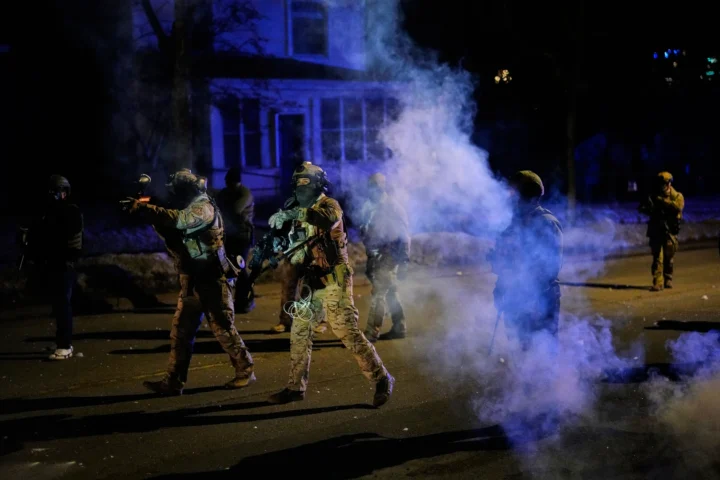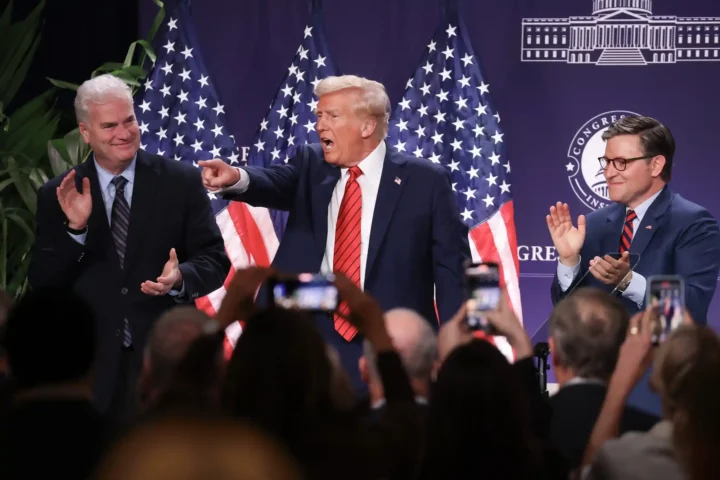In one of the most dramatic political turnarounds in Canadian history, Prime Minister Mark Carney has led the Liberal Party back from the brink, securing a narrow victory in Monday’s election and delivering a stinging rebuke to both domestic conservatism and foreign belligerence. At the heart of his success is a message that resonated deeply with Canadians: sovereignty, dignity, and defense in the face of rising American aggression under President Donald Trump.
Carney’s ascent was anything but guaranteed. When he stepped into the role of interim prime minister earlier this year following Justin Trudeau’s resignation, the Liberals were deeply unpopular, and many expected a Conservative sweep. But the campaign’s trajectory shifted dramatically amid escalating tensions with Washington. As Trump launched steep tariffs on Canadian goods and floated outrageous territorial claims—including, shockingly, the idea of annexing Canadian land—Carney seized the moment to recast the election not just as a political contest, but as a national resistance.
It worked. The Liberals won 169 seats—just three shy of a majority—and unseated longtime Conservative leader Pierre Poilievre, who lost his seat after more than two decades in Parliament. Poilievre’s rhetoric, often mimicking Trump’s nationalist populism, ultimately proved to be political poison in a climate where Canadians were clamoring for principled leadership and international respect.
The parallels between Poilievre and Trump were more than stylistic. Both trafficked in a politics of grievance, conspiratorial thinking, and inflammatory nationalism. But whereas Trump could lean on the machinery of U.S. power to enforce his vision, Poilievre found himself increasingly out of step with a Canadian public wary of American encroachment and repulsed by Trump’s bullying tactics. His defeat sends a clear message: Canadians do not want Trumpism in any form, domestic or imported.
Carney, by contrast, offered a sharp, competent, and centrist alternative. With a résumé that includes stints as the head of both the Bank of Canada and the Bank of England, he projected both authority and calm in a time of geopolitical turbulence. His campaign was laser-focused on one theme: protecting Canada. Not just from economic instability, but from existential threats to its sovereignty. He promised a stronger military, retaliatory tariffs against the U.S., and a firm stance against Trump’s saber-rattling. Voters, alarmed by the language coming out of Washington, rewarded him for it.
In his victory speech, Carney pulled no punches. “President Trump is trying to break us so that America can own us,” he declared. This wasn’t hyperbole—it was a statement of intent. Canadians have seen what a second Trump term means: a renegotiation of the North American order on America’s unilateral terms. Carney’s recognition that the old, integrationist relationship with the U.S. is over was a sobering moment, but one that rang true. Gone are the days of quiet diplomacy and assumptions of goodwill from our southern neighbor. We are entering a new era, and Carney seems prepared to meet it with open eyes and a clenched fist.
But his challenges are only beginning. With no outright majority, Carney will need to form alliances in Parliament to pass legislation and govern effectively. This could temper some of his more aggressive proposals, particularly those aimed at retaliating against the United States. Yet it may also provide him with an opportunity to build a broad, national coalition—one rooted in a renewed sense of Canadian identity and shared purpose in uncertain times.
Internationally, Carney faces two immediate tests: hosting the G7 summit in Kananaskis, which will bring Trump to Canadian soil, and representing Canada at the NATO summit in The Hague. These events will serve as a litmus test for his leadership on the world stage and his ability to balance defiance with diplomacy. At the G7, Carney will need to confront Trump directly—on tariffs, on sovereignty, and perhaps on even more fundamental questions about Canada’s place in the Western alliance.
How he handles these encounters will shape not only Canada’s global standing, but also the cohesion of his own government and public support at home. Canadians have placed their trust in him to be the nation’s bulwark against a destabilized superpower. Delivering on that promise requires not just rhetorical strength, but strategic acumen and moral clarity.
In the end, Mark Carney’s election victory is more than a political win—it’s a statement of national resolve. Canada has drawn a line in the snow: we will not be annexed, bullied, or bought. We will not tolerate leaders who would cozy up to authoritarianism or sell out our sovereignty for the illusion of stability.
Carney now carries the hopes of a nation on his shoulders. The next chapter will be fraught with difficulty, but also ripe with opportunity—for Canada to redefine its future not as America’s polite neighbor, but as a confident, independent force on the global stage. Let us hope he is equal to the task.











